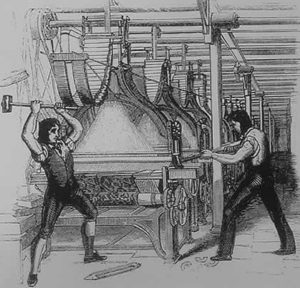Yes, we’re all surprised that America’s economy is still doing well, considering that we’re two years into the reign of a president who doesn’t understand basic financial systems, seems determined to destroy whole industries, and has had more bankruptcies and failures than anyone should be allowed, to say nothing of the zealots and incompetents who staff his corrupt administration.
Seriously, how are we all not starving to death in abandoned towns and fighting for scraps in hollowed-out cities right now?

In any case, the economy will inevitably turn sour soon. And when it does, we may all rely on, you guessed it, Latinos to bail out America.
You see, researchers have found that “the Hispanic communityin the United States has contributed significantly to U.S. economic growth in recent decades and will continue to do so over the next 10 to 20 years.” In fact, the “outsized contribution of Hispanic immigrants to U.S. economic growth results from thequality of the workforce, not just quantity.”
In other words, Latinos are one of the main influencers of the American economy, even if certain individuals, media figures, and political parties deny it.
Studies have found that within five years, Latinos will make up about 20 percent of the U.S. workforce and that “the increase in employedHispanic laborcould contribute more to U.S. GDP growth than non-Hispanic labor.”
Of course, these numbers assume that America will still be around in five years. And if Trump wins a second term… well, it’s best not to finish that sentence.
Now, I know what you’re saying: “Sure, there are a lot of Hispanics out there, stealing jobs left and right. But the only occupations those swarthy immigrants can handle are the low-level, menial gigs.”
OK, maybe you’re not saying that. But trust me, someone in the White House or on Fox News is saying that even while you read this.
The immediate rebuttal to this sad mode thinking is another data point that research has uncovered, which is the following: “Hispanic arrivals have exceeded contemporary native-born Americans… in theirentrepreneurial capabilitiesand integration into economically relevant parts of the workforce.”
That’s right — when it comes to starting new businesses and creating new jobs, Latino immigrants are far more important than your ninth-generation white working class voter waving an American flag. In fact, “foreign-born and Hispanic populations have become engines of U.S. entrepreneurship, especially since the Great Recession.”
Let’s emphasize this again: “The growth rate of Latino businesses in the United States has outpaced the growth rate of all other groups,” and Latino-owned firms “compose a significant — and still growing — percentage of U.S. businesses.”
The reasons for this include the growth of the Hispanic population, the fact that Latinos tend to be younger than the general population, and the truth that throughout American history, there has been a “universal positive benefit that immigrants have on theeconomy and entrepreneurship.”
Of course, if you really want to get exact, Americans should drop to their knees and thank the strong Hispanic women among us.
That’s because according to a Stanford University study, Latinas are the leading entrepreneurs in United States. Specifically, immigrant Latinas “start businessesat a higher rate than non-Hispanic white women,” despite the unpleasant fact that they often struggle to obtain credit and have “the lowest rate of financial institution-based loans among all other groups of employer firms.” In addition, “the wage gap for women who identify as Hispanic or Latino is larger than that of any other racial or ethnic group.”
Does any of that institutionalized nonsense stop Latinas?
That would be a resounding no.
So when the economy inevitably tanks, and the coal mines don’t magically reopen, and jingoistic Americans across the nation keep repeating, “Who could have possibly foreseen this disaster?” over and over again, just keep one thing in mind:
Ultimately, it will be the Latinas who save us.













